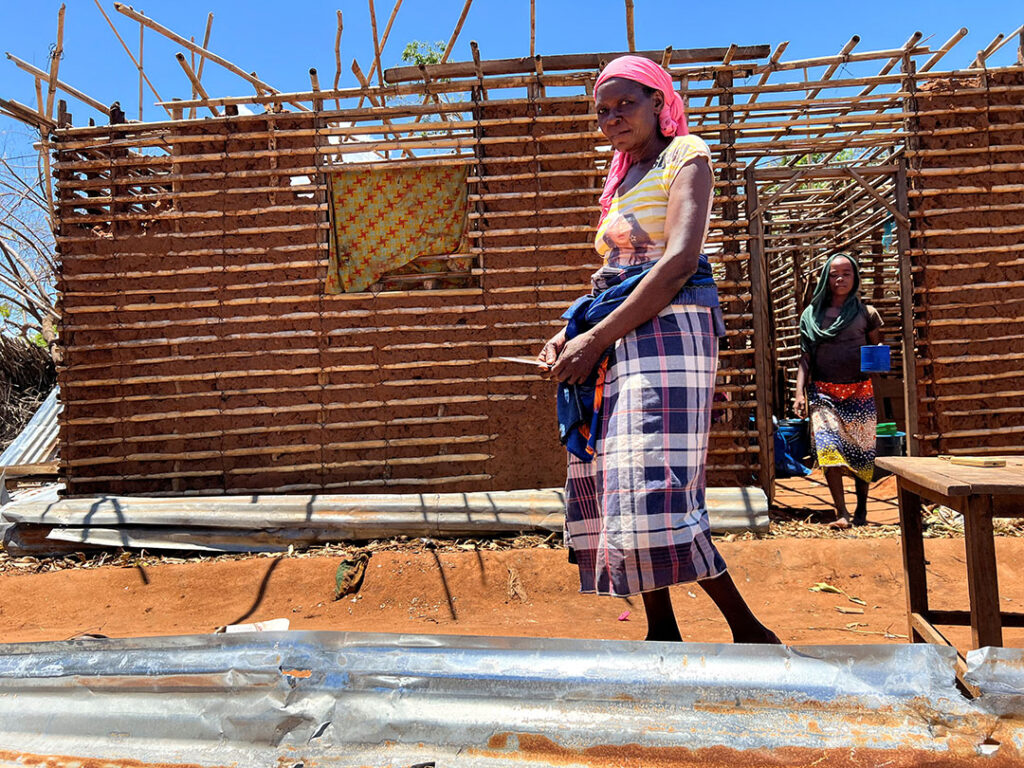ADF STAFF
As Cyclone Chido swept ashore in northern Mozambique on December 15, it slung winds of 120 to 260 kph, doused Nampula and Cabo Delgado provinces in heavy rainfall, and destroyed homes, schools and other key infrastructure.
The six-hour siege was devastating to a region already beset by more than seven years of insurgent violence at the hands of Islamic State (IS) group affiliate Ahl al-Sunna wal-Jama’a (ASWJ), known colloquially as al-Shabaab. As of December 31, the cyclone had killed at least 120 people in Mozambique.
“When the cyclone came, I thought I was going to die. It was very scary,” Bincha Jose Naquira of Pemba, Mozambique, said in a Reuters report. “I was surrounded by kids, by children. The children were crying, screaming. They were all very scared, and they all felt that they were going to die.”
Insurgent violence, which continued through 2024, has left many internally displaced people (IDP). Events that disrupt living conditions and destroy infrastructure and government services can create or exacerbate insecurity.
“Close to 300,000 people are IDPs in the area, many already displaced by the conflict in northern Mozambique,” Isadora Zoni of the U.N. Refugee Agency told U.N. News. “They had fled violence, only to now face yet another crisis. Once again, they’ve been forced to leave everything behind.”
It was unclear in the storm’s immediate aftermath how and whether ASWJ would exploit the disaster. But extremist groups often seek to take advantage of failures by governments to provide services. The ability to respond to natural disasters like the cyclone is one way a government establishes its legitimacy in the eyes of the public, said Dr. Daniel Eizenga, research fellow with the Africa Center for Strategic Studies (ACSS).
“A robust response that addresses the needs of the population in a transparent and accountable fashion may in the process help earn the trust and cooperation of local communities,” Eizenga told ADF via email. “Building trust and cooperation between national authorities and vulnerable communities may then offer a stabilizing benefit for the country more generally. … The relationship and trust between national authorities and those communities that are most vulnerable in insurgencies is often a key factor in any successful counterinsurgency effort.”
ASWJ started operating under the umbrella of IS Central Africa Province in 2019, according to the Soufan Center. IS formally recognized the Mozambique insurgency as an official branch in 2022.
With this recognition came a 29% increase in the number of violent incidents in 2022 after a 23% decrease a year earlier, according to a 2024 report by the Middle East Africa Research Institute (MEARI). By 2023, ASWJ was believed to have only 300 active fighters, down from about 2,500 three years earlier.
Despite declines in violence associated with the arrival of Southern African Development Community and Rwandan security forces in July 2021, an August 2024 ACSS report projected that 250 violent events would claim 460 lives in Mozambique by the end of the year, nearly double the numbers of the previous year. “This underscores the resiliency of these militant Islamist groups, which have moved inland from their previous concentration on the coast,” the ACSS report said. “It also highlights the importance of a sustained security and government presence to ensure these threats are permanently addressed.”
The threat of broader regional disruption continues as ASWJ siphons support from outside Mozambique. Before and after ASWJ’s affiliation with IS, neighboring South Africa has been home to various incidents of terrorist association and financing, often through South Africa’s criminal networks. The MEARI report says that “South Africa remains a permissive environment in which terrorists and their networks continue to thrive.”
The report said South Africa has been named a “major financing hub” for IS in Mozambique. Several people have been sanctioned, and the report added that “South Africa’s financial system had been considerably exploited towards funding ISIS branches and networks across Africa.”
ASWJ’s emergence and affiliation affords South African sympathizers an easier way to engage in “active militancy” with IS without traveling to the Middle East, the Hudson Institute reported in a 2021 article.
“In short, evidence is emerging showing that individuals in South Africa with existing ideological sympathies to jihadism have begun actively offering material support to the ASWJ insurgency,” the Hudson Institute said.

